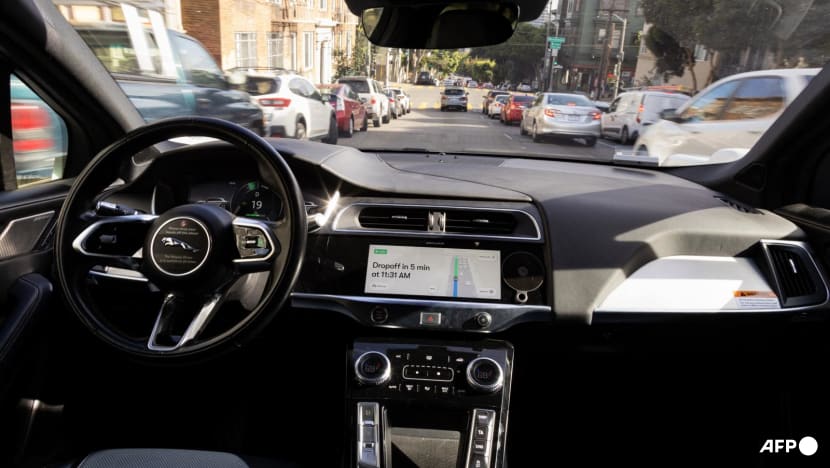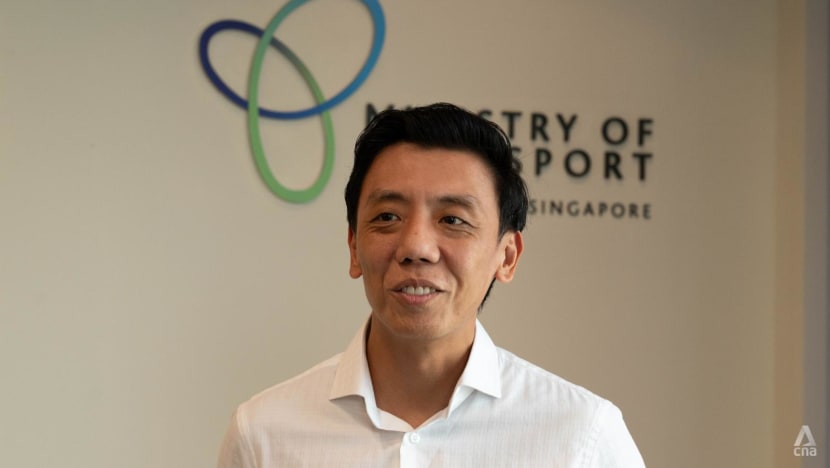Singapore to have 'many' autonomous vehicles in five years: Acting Transport Minister Jeffrey Siow
Autonomous vehicles will be a "significant addition" to Singapore's public transport network, says Mr Siow.
.jpg?itok=BA6IAmT1)

This audio is generated by an AI tool.
SINGAPORE: Singaporeans can expect to see "many" autonomous vehicles (AVs) on the roads in five years, said Acting Transport Minister Jeffrey Siow.
In a wide-ranging media interview on Jun 11, Mr Siow said there would be a "really big push" for AVs, which could be "potentially a game-changer" for public transport.
“I have no doubt, in five years, we will see many autonomous vehicles in Singapore,” said Mr Siow, who took on the acting minister role on May 23.
He said the government would probably start AV services with fixed routes in Housing Board estates, taking people to transport nodes first, and later to places of interest.Â
"In the HDB towns that are further away from the city, I envision that AVs will be deployed fairly extensively within the next five years, and they will be ... a very useful addition to the public transport network," said Mr Siow.
His view was that the initial phase should be a "ramp-up", before any "mass deployment" takes place.
Mr Siow, who is also Senior Minister of State for Finance, added that autonomous vehicles would "make a difference" and remove the "key constraint" of manpower when it comes to bus services.
"When you need to introduce a new bus service, you need to train a bus driver - that takes six months to a year, because you've got to learn how to drive the bus, you've got to hire and recruit the bus drivers, you have to buy the buses," he said.
"You also have to build the depot and interchange space if there isn't already. And so introducing bus services is not straightforward, it takes time."
Autonomous vehicles can also be smaller, and their routes changed more flexibly, he pointed out.
“All in all, I think they will be a significant addition to our public transport network.”
Mr Siow noted residents of San Francisco in the US already hiring AVs off the streets, and the Chinese city of Guangzhou also adopting the vehicles.Â
In January, the Land Transport Authority (LTA) issued a Request for Proposal (RFP) to pilot autonomous public bus services. The initiative aims to assess the technical feasibility of AV technology for public bus services, and gain insights into operational aspects at both service and fleet levels.
The pilot will start with smaller buses of at least 16 seats, with bus service 400 which runs around the Shenton Way bus terminal and bus service 191 which loops from Buona Vista bus terminal to Media Circle in one-north.Â
These areas were chosen for their shorter and simpler routes.Â
The RFP stated that the buses will initially operate with bus drivers onboard as safety operators, with the possibility of moving to remote supervision after demonstrating reliability for at least six months.Â
LTA plans to procure six autonomous buses for a start, with operations beginning in mid-2026 for an initial period of three years. Depending on their performance, up to 14 more buses may be acquired, to expand the pilot to two more services.
A "CHANGING DYNAMIC"
Mr Siow, a former senior civil servant who was in the transport ministry from 2012 to 2017, Â pointed out that MOT was "going great guns" in 2013 when it came to AVs, and had set up a committee to "drive" the issue.
"It's a rare opportunity for anyone to come back to a place where they have worked before. So I'm very happy to be back," he said.

Various testbeds for AVs have been rolled out across Singapore over the years.
These include autonomous shuttle trials on Sentosa Island, campus-based deployments at the National University of Singapore and one-north, and small-scale commercial pilots such as NTUC FairPrice Group’s collaboration with logistics partner Zelos.
Under current regulations, AVs can only be operated as part of authorised trials. Private ownership or public use of driverless cars remains prohibited.
LTA said previously that while countries such as the US and China have deployed fleets of AVs as robotaxis, safety remains the key focus in Singapore.
“Our priority is to ensure the local operating environment is suitable to facilitate their deployment in a safe manner, while also addressing issues related to public acceptance of such technology,” the authority told Â鶹 TODAY for its Big Read looking at Singapore's progress on AVs.
Last November, during the Singapore International Transport Congress & Exhibition 2024, Mr Siow's predecessor Chee Hong Tat talked about Singapore's progress in the AV space, reiterating that safety was the nation's top priority when assessing the deployment of the technology for commercial use cases.Â

If AVs become a reality on the roads, the dynamic of driving changes "considerably". said Mr Siow in his June interview.
He said it may make "less sense" for people to drive their own cars if AVs are widely available and convenient to use.
"That will have, I think, interesting implications for how we think about private vehicles, and then therefore by corollary, the COE (certificate of entitlement) system," he said.
In the short-term, AVs would be an "addition" to the public transport system and not necessarily competition to those driving for a living, said Mr Siow.
"In the long run, it may be so, and we will have to really work with the drivers and to find new jobs, as we've done in the past with train drivers."













